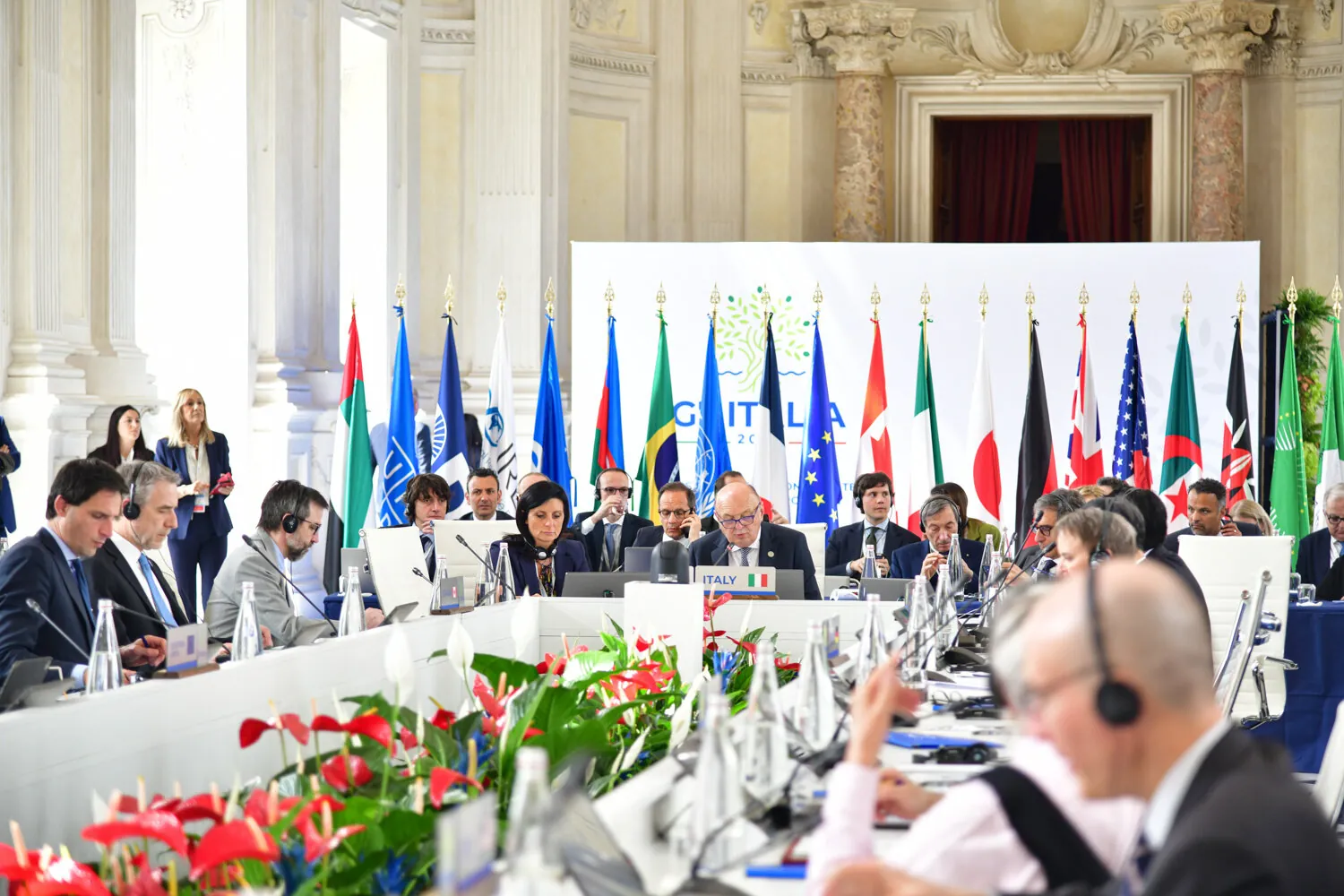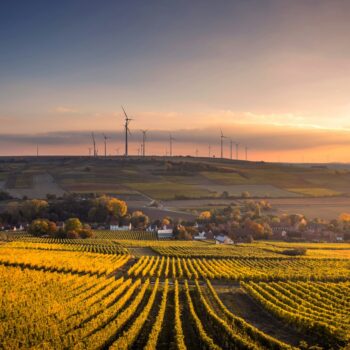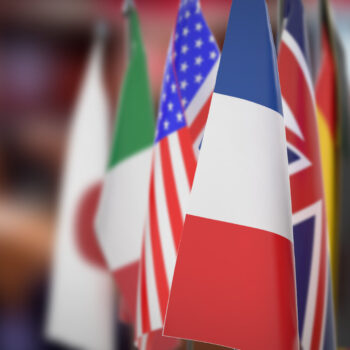- The G7 Climate, Energy and Environment Ministerial has agreed on new steps to implement the ramp up in climate action countries agreed in the COP28 deal in Dubai last November.
- The G7 has committed to submit 1.5C-aligned NDCs on time, to include new measures that will help implement the global agreement at COP28 to “transition away from fossil fuels”, and for the first time, the G7 countries have agreed a commitment to phase out coal by the early 2030s.
- G7 Finance Ministers and Leaders must now continue to build global momentum from COP28 by addressing gaps in today’s communique – especially increasing finance to support global climate action and delivering policies to ensure a 1.5C-consistent timeline for coal phase out by 2030.
Story
The G7 Climate Ministerial took place in Turin this week to discuss and align their course of action in tackling the climate crisis. Now more than ever, ambition and delivery are necessary to keep the hopes of limiting warming to 1.5°C alive. Under Italy’s presidency, G7 ministers agreed measures to deliver on the pledges countries made at COP28 last year to transition out of fossil fuels, align new climate plans with a 1.5C warming limit and improve the financing of climate adaptation.
The communiqué shows that G7 countries have taken their COP28 commitments seriously – it sets their path for implementation and focuses the spotlight on the rest of the G20 to match. While ministers have negotiated hard for this progress, some limitations remain for Leaders to pick up, especially on mobilising finance.
The signs of progress:
New commitments include the phase out of existing unabated coal power generation in G7 energy systems during the first half of 2030s or in a timeline consistent with keeping a limit of 1.5°C temperature rise within reach. Most G7 countries are already committed to phasing out coal by 2030 or taking major steps in that direction, as is necessary for alignment with a 1.5°C pathway. However, this is a major step forward for Japan, which has historically lagged behind its peers in taking action on coal but has now agreed to phase out the fuel by 2035 at the latest. All eyes will now be on domestic implementation and delivery to ensure 1.5C-aligned coal phase out by 2030.
In addition, the G7 commitment to achieve the doubling energy efficiency and tripling renewables targets agreed at COP28 is welcome and bolstered through a new global goal for energy storage in the power sector, although more support needs to be provided for developing countries to contribute to these global efforts.
By early next year, all countries need to submit updated climate transition plans (known as Nationally Determined Contributions, NDCs). The G7 has started laying the path for an ambitious track, by committing to submit 1.5°C aligned NDCs, 9 to 12 months before COP30. Done well, NDCs can drive economy-wide prosperity and attract investment to accelerate the transition. The communiqué commits the G7 to reflecting domestic plans and policies to transition away from fossil fuels in NDCs, to reconsider 2030 targets (though the commitment to revise them up could be firmer and would have helped provide long-term certainty about the G7’s competitiveness in the green economy and further ramp up ambition).
The G7 will also launch a new initiative to support countries turning adaptation plans into investment plans. This is a welcome addition despite a lack of specificity on what this would deliver and how – something that Canada can hopefully build on with their G7 Presidency next year.
The gaps that remain:
The G7 has only reaffirmed its previous commitment to a fully or predominantly decarbonised power sector by 2035 without strengthened language. None of the G7 countries has any ‘gas in power’ phase out dates, and all of them still have a significant new gas power plant pipeline. Concerningly the G7 reiterates last year’s communique describing public gas investments in gas as ‘appropriate as a temporary response’, raising the risk of continued investments in fossil gas despite being incompatible with the Paris Agreement and unnecessary for energy security.
Another big item missing is any concrete action on unlocking and delivering climate finance to fasten the pace of the transition, although positively the G7 recognise that trillions of dollars are needed for climate action. In addition, no signal was sent by the G7 on the importance of private sector transition plans as a critical financial alignment tool, despite being an area of focus in previous years and a topic that this year’s G20 is paying close attention to.
Quotes
Alden Meyer, Senior Associate at E3G said:
“It is heartening that G7 climate ministers have laid out several concrete steps to achieve the Dubai climate summit pledges of tripling renewable energy capacity and doubling the annual rate of energy efficiency improvement by 2030 and have pledged to include policies and milestones to accelerate the transition away from fossil fuels in their next round of Paris Agreement emissions reduction commitments. But much more work lies ahead to fully implement these domestic actions and at the June summit, G7 leaders must signal their intention to help mobilize the greatly expanded financial resources needed by developing countries to both decarbonize their economies and cope with the mounting impacts of climate change.”
Maria Pastukhova, Programme Lead at E3G said:
“It is good to see the G7 showing leadership on the global energy targets agreed at COP28. The Group’s commitment to support the global energy storage target of 1.5TW by 2030 and to contribute to the global doubling of grid investments is a welcome one as it not only unlocks the global renewable capacity but also puts key enablers in place for a well-managed and affordable power systems transformation. The commitment to support methane emissions abatement in oil and gas producing countries is a useful one but more needs to be done for G7 to support the equitable transition of vulnerable fossil fuel producers.
The Ministers, however, leave a lot of homework to the Leaders on domestic energy transition delivery: despite the coal question being finally resolved, the Group is still stuck in the “energy crisis” mode of thinking on gas and hasn’t demonstrated clear progress towards the 2035 net-zero power systems commitment – for the third year in a row.”
Sima Kammourieh, Programme Lead at E3G, said:
“There has been considerable momentum around transition plans as a key transition finance tool. G7 Climate & Energy Ministers acknowledged their role at the national level, which is positive. But they are also critical for the private sector. Discussions are ramping up on this topic in the G20 this year, and specifically on the need to develop common principles for private sector plans globally. G7 Climate & Energy Ministers missed an opportunity to discuss this matter. It is critical that G7 Finance Ministers clearly show their support to the development of global common principles for private sector transition plans”.
Katrine Petersen, Senior Policy Advisor at E3G said:
“Today’s commitment was a milestone moment for the G7 as they, for the first time, came together to agree on phasing out unabated coal power in the first half of the 2030s. This is a major step forward for Japan – the only G7 country left without a domestic coal phaseout date and yet to join the Powering Past Coal Alliance – and marks the first clear acknowledgement from the country that it will need to phase out coal by 2035 at the very latest. Scientific consensus is crystal clear, however: to keep the 1.5°C goal within reach, the G7 must bid farewell to coal by no later than 2030 – while the majority of G7 countries are already taking major steps to meet that goal, they must all redouble efforts to step up and meet this necessary level of ambition, or risk sending the wrong signal to the rest of the world.”
Gustavo Pinheiro, Senior Associate at E3G, said:
“The G7 climate ministers signalled the delivery of the COP28 deal, including planning for enhancing fossil fuel transition policies, tripling renewable energy supply and doubling energy efficiency by 2030. Now it is expected that fossil fuel transition is also under the spotlight in the upcoming G20 meetings hosted under the Brazilian presidency.”
Ana Mulio Alvarez, Researcher at E3G, said:
“The Clean Economy Action Plan was a great step forward from the G7 to have continuity in their leadership for climate action. Their new adaptation initiative is also a positive signal, but it is unclear what level of impact it will deliver. A Global Resilience Action Plan, similar to the Clean Economy Action Plan, could serve as a unified and coherent roadmap displaying the G7’s dedication to addressing adaptation and loss and damage at home and abroad.”
Available for comment
Tom Evans (EN), E3G Policy Advisor, (climate ambition, the Global Stocktake, UNFCCC processes and COP29, climate diplomacy & geopolitics)
m: +44 (0) 7931 317 327 | tom.evans@e3g.org
Alex Scott (EN), E3G Programme Lead, (Climate diplomacy, climate finance, adaptation finance, loss and damage, COP29)
m: +44 7482 750760 | alex.scott@e3g.org
Katrine Petersen (EN, DK), E3G Senior Policy Advisor, (Global coal phaseout, fossil fuel transition)
m: +44 (0) 7961754452 | katrine.petersen@e3g.org
Alden Meyer (EN), E3G Senior Associate, (UNFCCC and G7/G20 dynamics, multilateral climate and clean energy diplomacy, mitigation ambition, climate finance, US policy and politics)
m: +1-202-378-8619 | alden.meyer@e3g.org
Sima Kammourieh (EN, FR, DE, AR), E3G Programme Lead, (International financial regulation and standards, G7/G20 finance ministers)
m: +49 (0) 160 9596 4443 | sima.kammourieh@e3g.org
Maria Pastukhova (EN, DE, JA, RU), E3G Programme Lead, (International energy diplomacy, geopolitics of the energy transition, methane)
m: +49 (0) 160 901 67735 | maria.pastukhova@e3g.org
Ana Mulio Alvarez (EN, ES), E3G Researcher, (UNFCCC, loss and damage, adaptation)
m: +32 490 000 514 | ana.mulio@e3g.org
Notes to Editors
- E3G is an independent climate change think tank with a global outlook. We work on the frontier of the climate landscape, tackling the barriers and advancing the solutions to a safe climate. Our goal is to translate climate politics, economics and policies into action. About – E3G
- For further enquiries email press@e3g.org or phone +44 (0)7783 787 863
- Register for our journalist WhatsApp briefing service to receive updates and analysis for key geopolitical and climate events over 2024 and 2025 on the road to COP29 and COP30: E3G WhatsApp registration for journalists – E3G.


